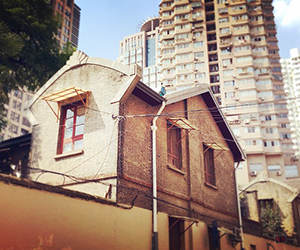 Virtual Special Issue – Housing in China
Virtual Special Issue – Housing in China
The remarkable rise of the Chinese economy over the last few decades has not only been accompanied, but also driven by the most intensive urbanisation process in history.
Housing policy and the nurturing of housing markets have been at the heart of economic reforms and both have delivered phenomenal improvements in living conditions, capital growth and land values. At the same time, the distribution of these improvements has been highly uneven, both socially and spatially. Housing development and urbanisation programmes have not progressed smoothly, and the economy has become increasingly vulnerable to housing market volatility and speculative practices. Since the late-2000s, the Chinese state has attempted to move away from a purely market orientated approach to housing, rolling out directives and incentive programmes for the development of social forms of rental housing. Housing then, remains a particularly contested issue and continues to shape the further advance of China’s economic ‘miracle’.
This virtual special issue addresses diverse aspects of development and change in the Chinese housing system. On the one hand, Ye, Song and Tian address core economic transformations in housing during the rapid marketization period while Wu takes a longer and more critical view of housing market cycles. Huang and Yi also consider housing market transition, but more form the level of the user and tenure choice. Policy implementation is diverse across China, and Wang’s analysis of the housing renewal process at the city level illustrates quite clearly how housing policy and development has been an important part of establishing Shanghai as a commercial hub. Wang and Murie, meanwhile, address the continued social dimension of housing policy, as well as the re-assertion in recent years of public rental housing.
Edited by Richard Ronald
